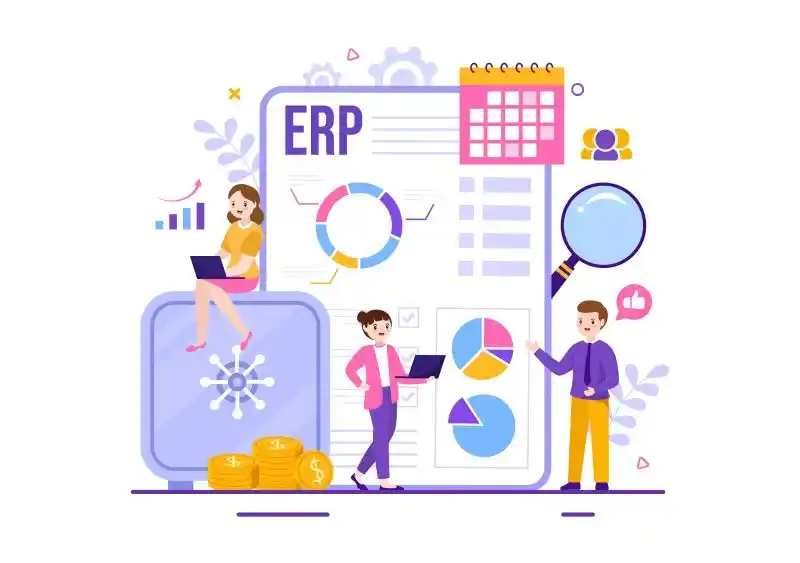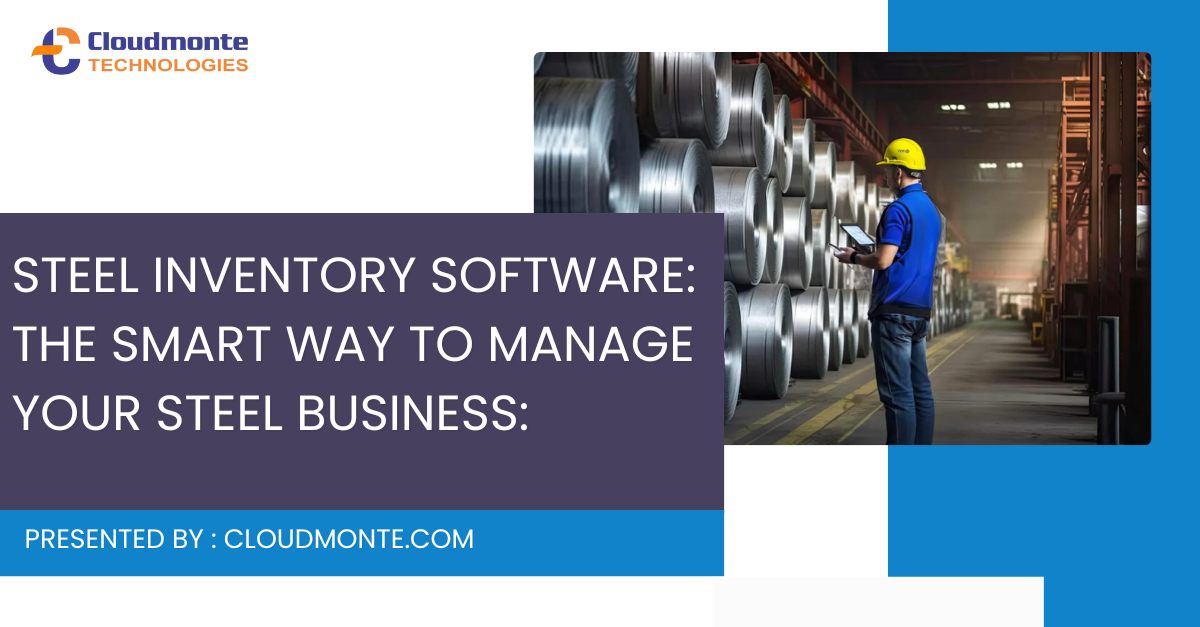Are you a Small or Mid-sized SMBs looking for Best ERP software with GST-Compliant, Scalable and Smart.
As small or mid-size businesses grow, managing workflows manually becomes overwhelming. Whether you’re tracking inventory, handling finances, or staying GST-compliant, integrating everything under one roof is essential. That’s why choosing the best ERP software for businesses is crucial.
In this list, you’ll find top-tier, GST-compliant ERP software ideal for Indian SMBs—combining automation, affordability, and agility.
Odoo ERP System:
Odoo ERP offers modules for accounting, inventory, CRM, manufacturing, and more. Its open-source Community edition and feature-rich Enterprise version make it adaptable for growing SMB needs—though GST setup may require additional configuration.
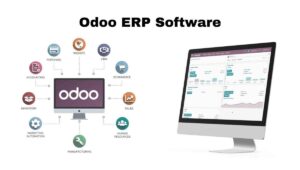
Features of Odoo ERP Software:
- Modular System – 30+ core modules (Sales, CRM, Accounting, HR, Inventory, Manufacturing, etc.) and 20,000+ community apps.
- Integrated Applications – All-in-one platform connecting Sales, CRM, Accounting, HR, Inventory, and more.
- User-Friendly Interface – Modern, web-based, and accessible on desktop and mobile.
- Customization & Flexibility – Highly configurable workflows and open-source development support.
- Accounting & Finance – GST compliant, automated invoicing, bank reconciliation, and real-time financial reports.
- Inventory & Warehouse Management – Real-time stock tracking with barcode/RFID support and multiple warehouse handling.
- CRM & Sales Management – Lead tracking, sales pipeline, quotations, and customer relationship management.
- Project & Task Management – Kanban, Gantt, timesheets, and collaboration tools.
- E-Commerce & Website Builder – Drag-and-drop website builder with inventory and payment integration.
- Multi-Company & Multi-Currency – Manage multiple branches and currencies in one platform.
Microsoft Dynamics 365 Business Central:
A modern, cloud-based ERP with Accounting, Sales, Inventory, and BI (via Power BI). It integrates smoothly with Office 365 and scales with growth—perfect for SMBs already using Microsoft tools.
Top Features of Dynamics 365 Business Central:
All-in-One Business Management – Integrates finance, sales, purchasing, inventory, projects, and operations in a single platform.
- Financial Management
- Real-time cash flow, budgets, bank reconciliation, and multi-currency support.
- GST/VAT and tax compliance (localized for multiple countries).
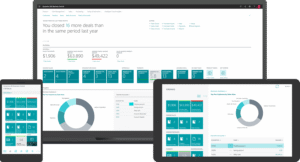
Inventory & Supply Chain Management
- Tracks stock across locations, warehouses, and bins.
- Supports serial numbers, lot tracking, and automated replenishment.
Sales & Customer Relationship Management
- Manage leads, quotes, sales orders, and customer interactions.
- Integration with Outlook for seamless customer communication.
Project & Job Management
- Budgeting, resource allocation, timesheets, and progress tracking.
Manufacturing (MRP)
- Bills of Materials (BoM), production orders, capacity planning, and shop floor control.
Seamless Microsoft 365 & Power Platform Integration
- Works natively with Excel, Outlook, Teams, and Power BI for advanced analytics.
Cloud, On-Premises, and Hybrid Deployment
- Flexible deployment options depending on business needs.
Scalability & Customization
- Extensions through Microsoft AppSource and customization via AL language.
Security & Compliance
- Role-based security, GDPR compliance, and enterprise-grade Microsoft cloud security.
SAP Business One
Geared toward slightly larger SMBs, this ERP brings strong finance, HR, and operations automation. It offers powerful scalability—but be prepared for a steeper price point and deployment commitment.
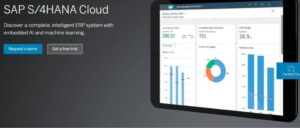
Feature of SAP Business One:
Financial Management – Automated accounting, cash flow, multi-currency support, and tax compliance.
Sales & CRM – Manage leads, quotations, orders, invoices, and customer relationships.
Inventory & Warehouse Management – Real-time stock tracking, batch/serial number management, and multiple warehouses.
Production & Project Management – Bills of Materials, MRP, production orders, project budgeting, and resource allocation.
Analytics & Integration – Customizable reports, dashboards, and seamless integration with Microsoft Office, SAP HANA, and third-party apps.
Infor CloudSuite ERP Solutions:
An industry-specific, cloud-deployed ERP that offers flexible workflows, AI analytics, and scalable business intelligence—great for SMBs in verticals like manufacturing, healthcare, or retail.
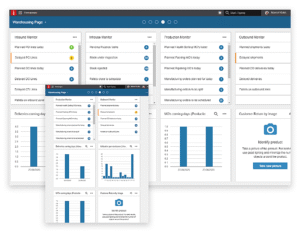
- Streamlined accounting, budgeting, cash flow management, and multi-currency support.
- Real-time inventory tracking, demand planning, warehouse optimization, and procurement management.
- Supports discrete, process, and mixed-mode manufacturing with production scheduling and shop floor control.
- Manage leads, orders, quotes, and customer service through integrated CRM tools.
- Built-in dashboards, reporting, and predictive analytics, with cloud deployment for scalability and accessibility.
Oracle NetSuite
A cloud-first, global ERP powerhouse, offering comprehensive finance, supply chain, CRM, and inventory management with dynamic dashboards—ideal for SMBs scaling toward enterprise operations.
- General ledger, accounts payable/receivable, fixed assets, multi-currency, and tax compliance.
- Lead-to-cash process, opportunity tracking, quotations, and customer relationship management.
- Real-time inventory tracking, demand planning, order management, and procurement.
- Supports discrete, process, and mixed-mode manufacturing with production scheduling and resource planning.
- Built-in dashboards, KPI reporting, business intelligence, and fully cloud-based for scalability and accessibility.
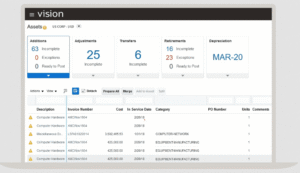
Why These Qualify as the Best ERP Software for Small Businesses?
GST Compliance Built-In – All listed options offer robust support for GST invoicing, return filing, and e-way bills.
SMB-Friendly Pricing & Scale – From affordable open-source options like Odoo to lightweight accounts-focused tools like Zoho and Tally.
Automation & Efficiency – Reduces manual entry, streamlines workflows, and centralizes operations for informed decision-making.
Growth-Ready – Many options (Odoo, NetSuite, Dynamics) allow extending modules as your business expands.
How to Pick the Right ERP for Your Business?
Clarify Your Needs – Do you need core accounting or full workflow automation plus inventory and CRM?
Budget Wisely – Factor in setup, training, and support costs, not just software price.
Plan for Scalability – Start lean but ensure addition of new modules/features as required.
Support & Community – Choose platforms with strong vendor support or thriving community (especially for open-source).
Test Before Commitment – Use trials to explore UI, GST ease, reports, and workflows.
Final Thoughts
Choosing the right ERP software for small businesses can transform the way your company operates, making processes more efficient, ensuring GST compliance, and supporting growth. Whether you prioritize affordability, cloud capabilities, or scalability, selecting the best ERP software tailored to your needs will not only simplify daily operations but also empower smarter business decisions. Investing in the right solution today sets the foundation for a more organized, productive, and future-ready business.

